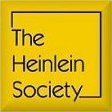|
|
|
- Old MacDonald had a farm, e-i-e-i-o
- And on this farm he had a pig, e-i-e-i-o
- With an oink, oink here and an oink, oink there
- Here and oink, there an oink
- Everywhere where an oink oink
- Old MacDonald had a farm, e-i-e-i-o
- And on this farm he had a pig, e-i-e-i-o


